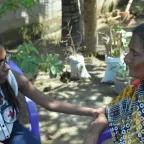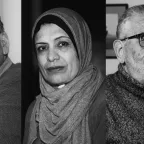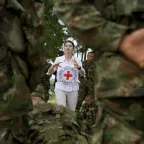Sri Lanka: Waiting for answers
Between July and September 2017, we started conducting lectures on ambiguous loss for students and professionals in the fields of psychology and counselling to raise awareness of it, with the aim of …
Between July and September 2017, we started conducting lectures on ambiguous loss for students and professionals in the fields of psychology and counselling to raise awareness of it, with the aim of …

… is equally important in States’ counter-terrorism activities amounting to armed …
… as civil unrest, riots, isolated acts of terrorism or other sporadic acts of violence. …
Losing someone you love is the worst nightmare every human being dreads. When you lose a loved one to conflict and violence, there is more than pain. There is anger and frustration. There is trying …

… on the labelling of certain conflicts as ‘terrorism’ or ‘counter-terrorism’ operations, is seen by participants … are witnessing a trend of counter-terrorism (and other) legislation that …

… 2009, pp. 320-336. HEINTZE Hans-Joachim, “Terrorism and Asymmetrical Conflicts: a Role for … ICTY, The Prosecutor v. Boskosk d) Acts of terrorism? Introductory text IHL only applies … or as part of an armed conflict. Acts of terrorism committed in situations of internal …
… armed groups: Blurring of lines between terrorism and … the blurring of lines between IHL and the terrorism paradigm, the geographical scope of … ARMED GROUPS: BLURRING OF LINES BETWEEN TERRORISM AND IHL In response to the rise in …
The civilian population continues to bear the brunt of the war. We wish that the figures we report here for humanitarian consequences belonged to the distant past. However, these figures reflect the …

This week, ICRC president Peter Maurer is in Ukraine, his second visit to the country since the conflict broke out almost three years ago. In this diary, he will share some impressions of the people …

… under international instruments relating to terrorism to which the State is a Party, or an …
Try one of the following resources:
Created in 1863, the ICRC library, alongside the ICRC archives, provides an indispensable documentary reference on the organization itself and international humanitarian law.
International humanitarian law is based on a number of treaties, in particular the Geneva Conventions of 1949 and their Additional Protocols, and a series of other instruments.
Customary international humanitarian law consists of rules that come from "a general practice accepted as law" and that exist independent of treaty law.